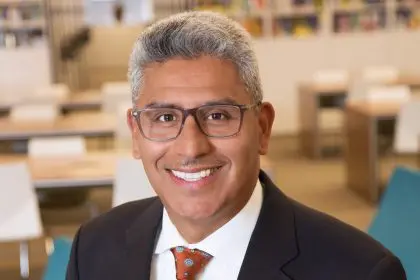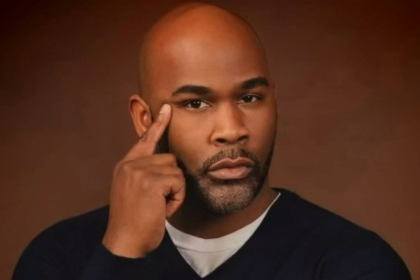Dr. Keon N. Berry is an award-winning expert in education, dynamic social justice advocate and speaker, ordained minister, and international children’s book author. The Ivy League graduate is a professor at Morehouse College, where he researches and advocates for low-income, Black, and minority groups. For his impactful work across sectors, he received the 2024 Presidential Lifetime Achievement Award.
In the famous words of Marvin Gaye, “What’s going on?”
From changes in technology integration to shifts in teaching methods, the way we approach the students of today looks drastically different than it did even a decade ago. A holistic, student-centered education, one that prioritizes early learning, family support, and literacy, can empower Black students to succeed in the 21st century. We must reimagine how we educate Generation Z and beyond, ensuring they have the skills, support, and opportunities they need to thrive at their innate promise in an ever-evolving global economy.
I am certain that early childhood education (ECE) lays the groundwork for lifelong success for all students. A child’s brain is hardwired during the critical first five years of life. The very beginning matters, and high-quality ECE programs build essential language, cognitive development, and social-emotional growth skills, setting students up for long-term success. The research is clear that too many Black families still face systemic barriers to accessing quality early childhood programs. In my study, ”Exploring the Experiences of Black, Low-Income Parents’ Access to Quality Early Childhood Education Programs (ECE),” I discuss some of my findings for Georgia and uncovered challenges for Black families in Georgia, including racial disparities in program availability, financial barriers, and a lack of affordable options. Lack of access to high-quality early learning leaves Black children at a disadvantage long before they enter kindergarten. ECE programs allow parents to work to provide for their families, linking childcare directly to workforce participation and economic impact.
The students of the 21st century are digital natives exposed to technology from their inception, and they thrive on interactive, dynamic learning experiences. The educator’s job is to meet them where they are, using flexible, student-centered teaching approaches that inspire excitement about learning. Rigid, one-size-fits-all models of education are antiquated, and educators must adapt to the individual needs of their students, recognizing that Black students, like all students, come to the classroom with different strengths, learning styles, and interests.
It goes without saying that a learner’s life at home is essential to their success. Educators and parents must actively partner to achieve positive outcomes, as strong collaboration and rapport is indispensable. Furthermore, it is important to recognize the critical need for Black families to have more books in the home, and we can significantly enhance literacy rates by reframing our financial priorities and investing in new books, resources, and educational literature. This inspired me to publish my new children’s book, “Hello, My Name is Doctor,” which aims to inspire the next generation of children to embrace their deepest truth while making sure that Black children have access to Black authors, regardless of banned book laws, because representation matters.
Beyond reading, literacy means empowerment. It’s about equipping students with the ability to not ask what to think but to know how to think for themselves. It provokes thoughtful inquiry, self-expression, and meaningful engagement with the world, all of which are needed to contribute to this nation as productive stakeholders.
The Power of Voting
With the upcoming election this November, the urgency for change has never been greater. What we do at the polls will decide the policies that shape our children’s education, the funding that supports our schools, and the leadership that impacts our communities. This is about more than just choosing a president; it’s about choosing an administration that will protect and serve children. By voting, we can demand policies that invest in early childhood education, strengthen literacy programs, and ensure that every student, regardless of race or zip code, has access to a rigorous, high-quality education that prepares them for life.
Now is the time to act.
For more about Dr. Keon N. Berry, visit www.drkeonberry.com or email [email protected]. You can purchase Dr. Berry’s debut book at shopthevault.shop and other platforms.











